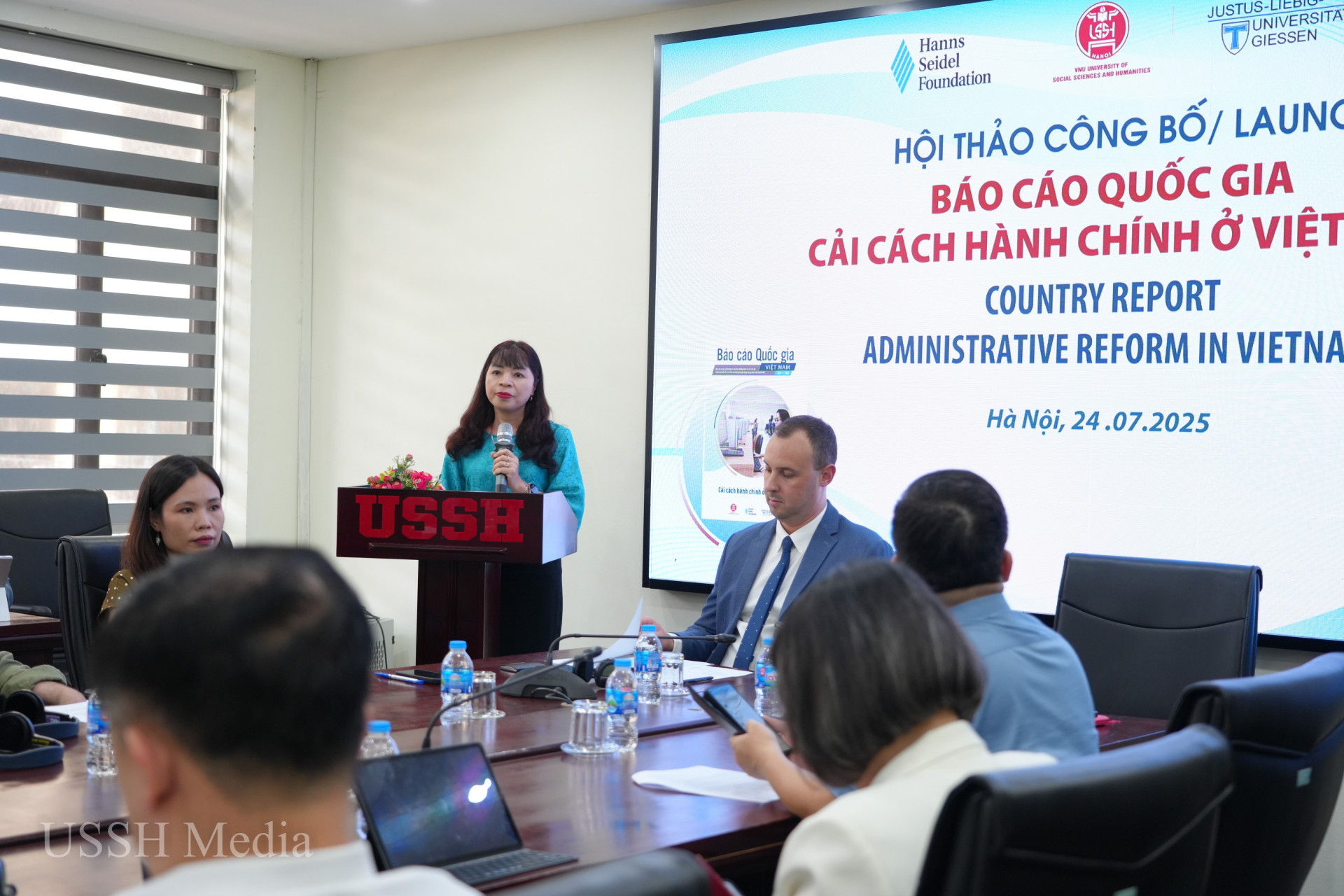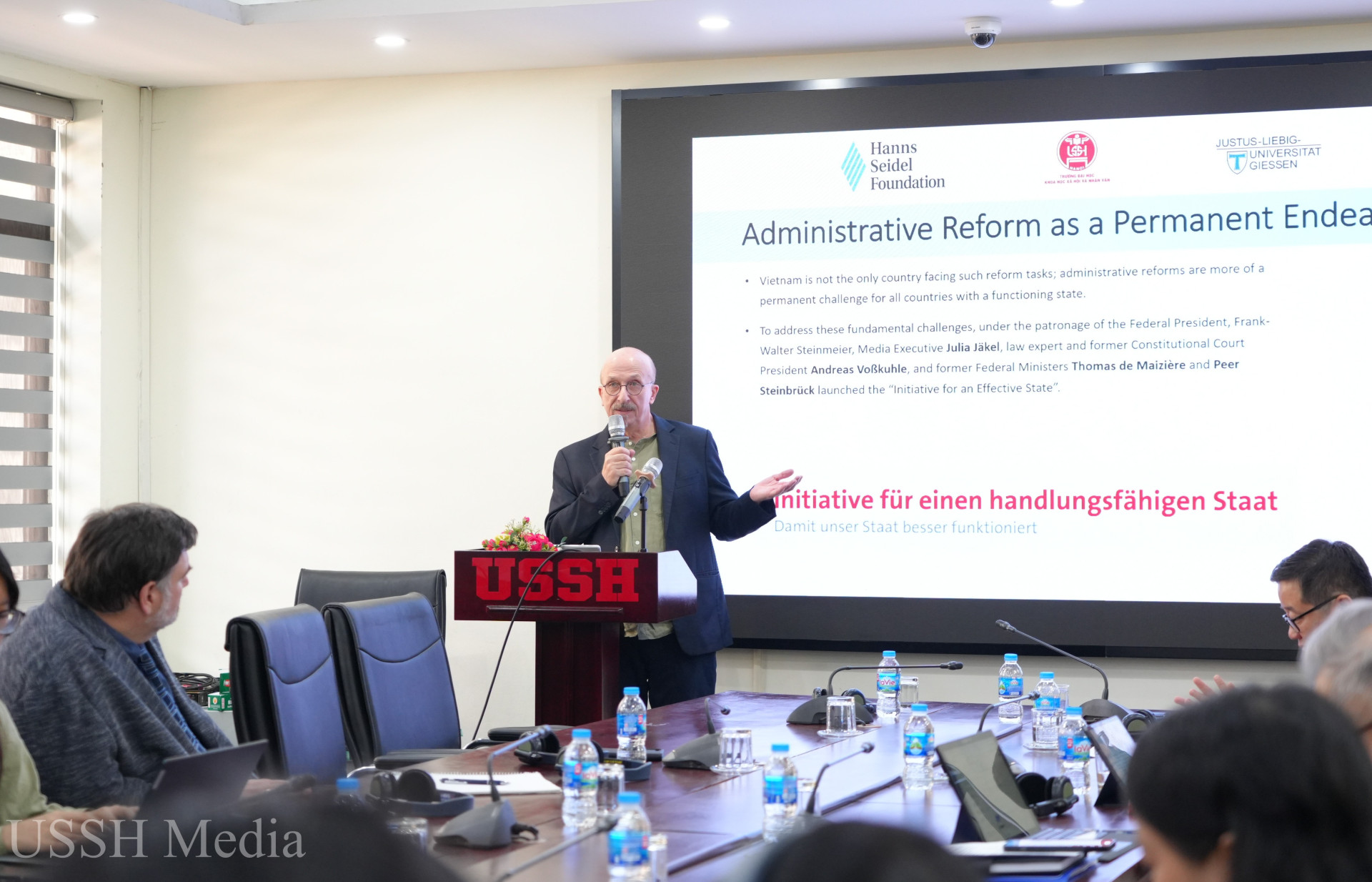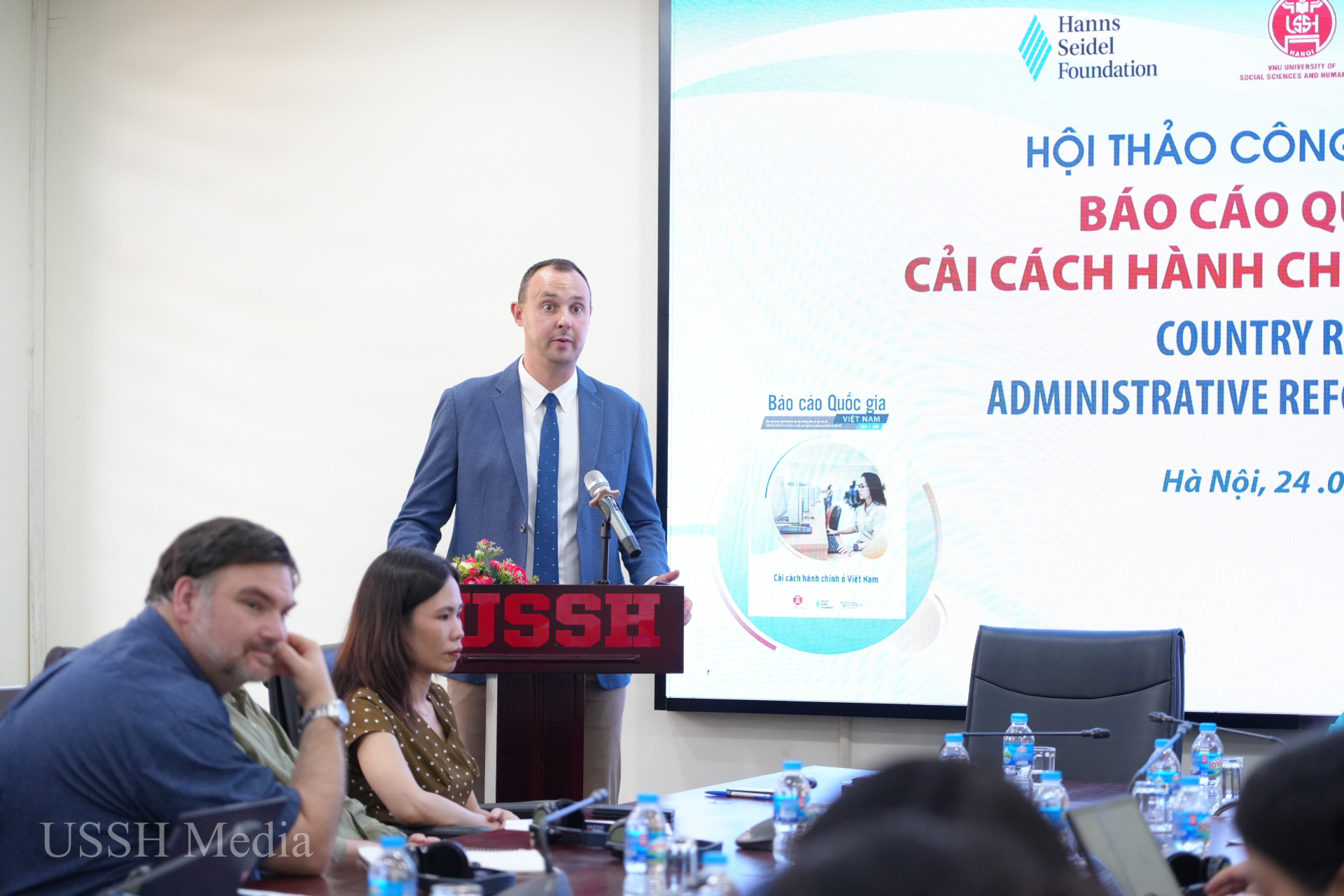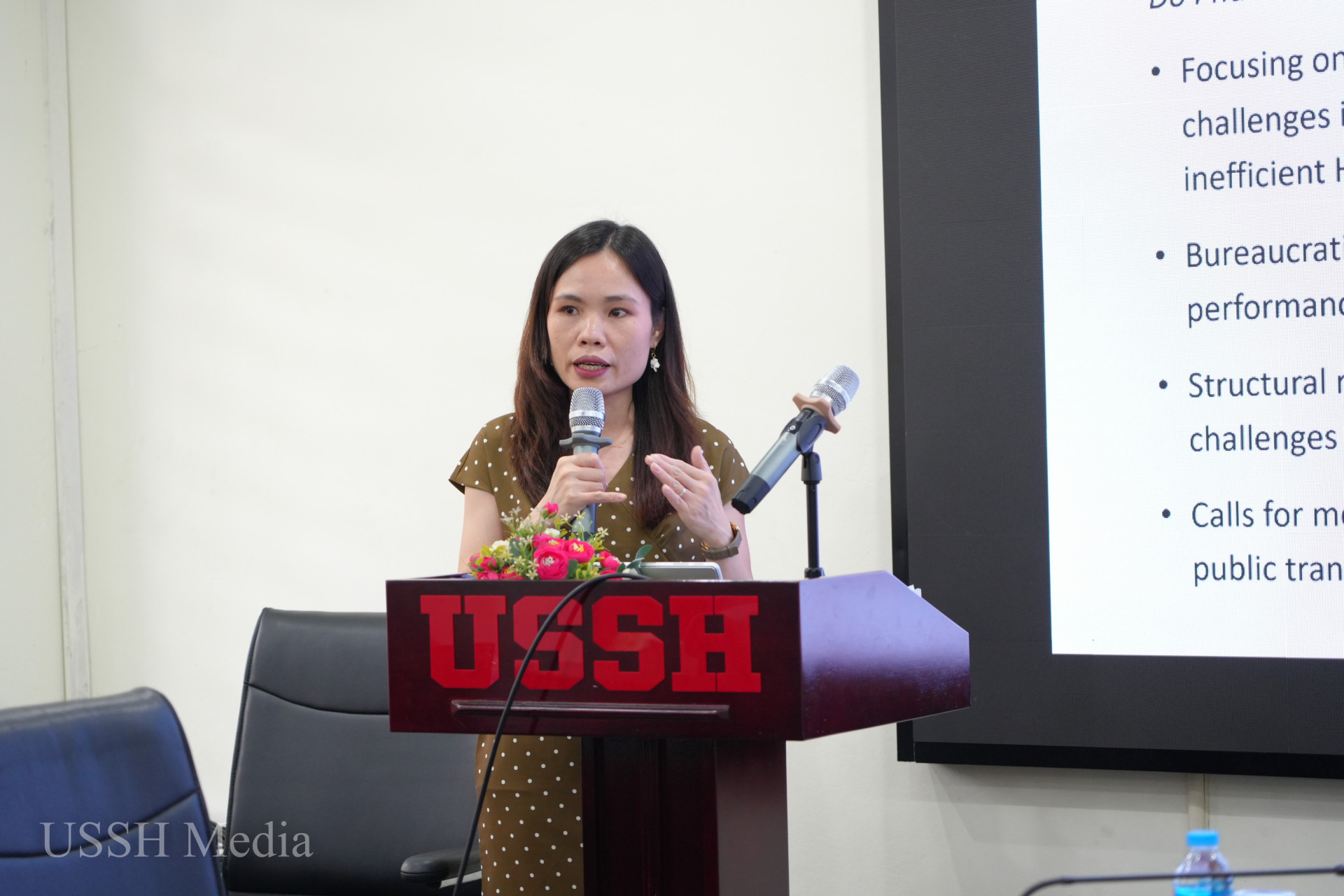The practical value of the Report in the context of Vietnam's "streamlining of the administrative apparatus"The National Report is published annually as part of a collaboration between the University of Social Sciences and Humanities, Vietnam National University, Hanoi (USSH), Justus Liebig Giessen University (JLU), and the Hanns Seidel Foundation in Vietnam, aiming to create a forum for academic research and policy dialogue on pressing social issues.
Associate Professor Dr. Dang Thi Thu Huong - Vice Rector of the University of Social Sciences and Humanities, Vietnam National University, Hanoi, delivered the opening remarks at the conference.
According to experts, public administration is an indispensable component of a modern state and contributes significantly to the nation's existence, both present and future. In particular, to ensure a prosperous society, public administration must be constantly adjusted to adapt to new challenges. Therefore, administrative reforms are of paramount importance. The current administrative reform being implemented by the Vietnamese government is a strong determination to create a major change in the national administrative structure. These ongoing reforms can be considered the most ambitious restructuring of the administrative apparatus, if not the entire country, since the beginning of the Doi Moi (Renovation) period.
In this context, this issue of the National Report on Vietnam focuses on the topic of administrative reform, a profound and rapid reform currently underway in Vietnam. Faced with such a powerful and multifaceted change, the research in this report attempts to interpret, organize, and apply theoretical frameworks and previous experiences to provide a clear, logical, and systematic view of the ongoing progress. Furthermore, the main objective of this research is to identify the driving forces, immediate and long-term impacts, and prospects of the current "streamlining of the administrative apparatus." In addition, scientifically-based proposals for solutions to improve the effectiveness of the administrative reform process are also presented.
Prof. Dr. Detlef Briesen - Co-Editor of the National Report on Administrative Reform in Vietnam
According to Michael Siegner (Head Representative of the Hanns Seidel Foundation in Vietnam), administrative reform in Vietnam is one of the most ambitious and transformative governance initiatives since the Doi Moi (Renovation) period. The restructuring of ministries, streamlining of the state apparatus, and the acceleration of e-government development all aim to create a more streamlined, transparent, and responsive administration. These changes are crucial for maintaining economic growth and achieving Vietnam's long-term development goals.
However, such a comprehensive reform program also presents numerous challenges, ranging from harmonizing legal systems and restructuring public sector human resources to ensuring that increased efficiency does not come at the expense of inclusiveness or the quality of public services.
Mr. Michael Siegner, Head Representative of the Hanns Seidel Foundation in Vietnam, expressed his expectations regarding the contributions of the Report.
Scientific value and policy implicationsThe 2025 “National Report: Administrative Reform in Vietnam” focuses on administrative reform and its multifaceted impacts on national governance and socio-economic development. The articles cover a wide range of topics: the formation and development of Vietnam's administrative system; current reform priorities; decentralization and e-government; and comparative perspectives from Europe.
Dr. Nguyen Thi Thuy Trang - Lecturer in the Department of International Studies, University of Social Sciences and Humanities, Editor-in-Chief of the National Report on Administrative Reform in Vietnam, presented the structure of the Report.
Accordingly, the Report is divided into four parts, the first of which provides an overview of the current administrative reform issue, drawing on international experience and the case of Vietnam (author Detlef Briesen).
The second part of the national report focuses on an overall assessment of the effectiveness of public administration in Vietnam from the perspectives of the public, the government, and academia. Specifically, it includes research on the historical development of the administration (by Nguyen Manh Dung), a comprehensive study of planned reform programs and their scope (by Do Huong Lan and Trinh Ngoc Thach); research on Vietnam's approach to administrative reform (by Nguyen Hong Hai); and supplementary research on the necessity and urgency of reform from a public perspective (by Nguyen Thi Thuy Hang).
The third part of the report illustrates classic administrative reform strategies through examples of recent innovations, specifically: research focusing on process and human resource innovation in the administrative system, through a study of the legislative activities of the Vietnamese National Assembly (by Do Phu Hai); research examining adjustments to the structure of Vietnam's political system (by Vu Thi Anh Thu); research analyzing the establishment of regional administrative units, along with redefining the boundaries and responsibilities of provinces and centrally-administered cities (by Nguyen Van Chieu and Hoang Thanh Lich); and research discussing the feasibility of applying a multi-level administrative model based on a circular economy in Vietnam (by Michael Siegner and Trinh Ngoc Mai). In addition, two studies compare the experiences of European countries on administrative reform related to digital transformation (by Sabine Kuhlmann) and decentralization (by Soeren Keil). Finally, the report includes a comprehensive study on changes and factors related to the administrative system structure and administrative reform process in Vietnam (author Nguyen Thi Thuy Trang).

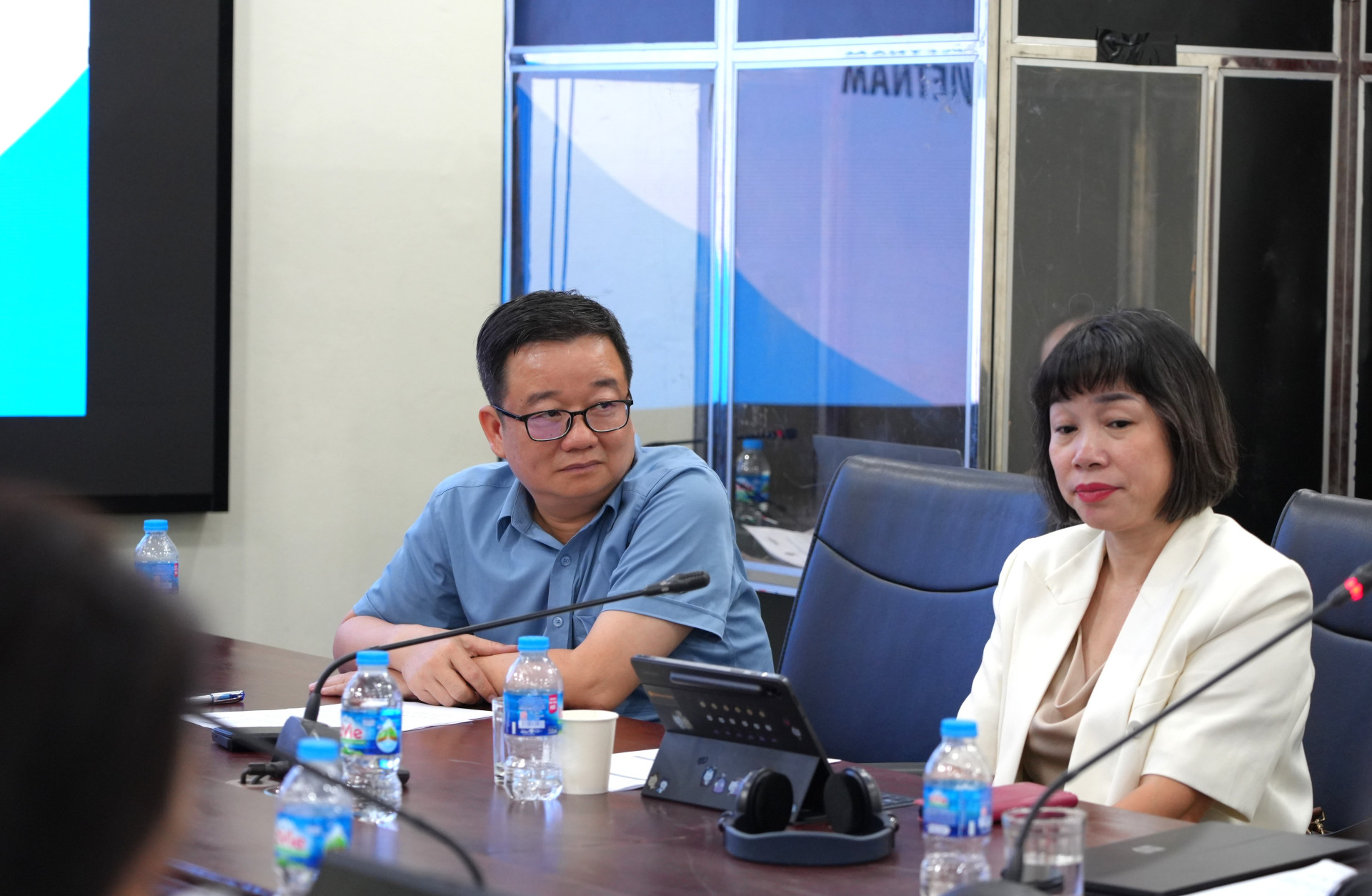

Scientists and experts from both domestic and international backgrounds discussed the findings of the Report.
Through the “National Report: Administrative Reform in Vietnam,” scientists and experts hope to provide useful analyses and promote dialogue among academics, policymakers, implementers, students, and development partners on this important topic. In the context of Vietnam preparing for the 14th National Congress of the Communist Party of Vietnam, the lessons learned from the current reform period will contribute to shaping the national governance architecture for decades to come.
Since 2020, the University of Social Sciences and Humanities, Vietnam National University, Hanoi, in collaboration with Justus-Liebig Universität Gießen (Germany), with support from the Hanns Seidel Foundation (Germany), has compiled and published an annual series of National Reports on Vietnam to provide updated information to the research and policy-making community on important social issues in the country's development process.
Since the first issue, “Vietnam as an Aging Society,” was launched in January 2021, the series of reports has published seven issues covering practical topics such as: Environmental policies in Vietnam, Vietnam – A Digital Society, Overcoming the Consequences of War in Vietnam, Women in Vietnamese Society, The Labor Market in Vietnam, and Policy Implementation in Vietnam. The reports have received positive feedback from researchers and policy practitioners.
Related articles:
VNU-USSH organized a workshop to announce the 2024 National Report on "Policy Implementation in Vietnam".
